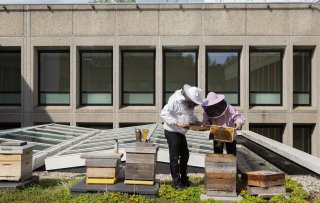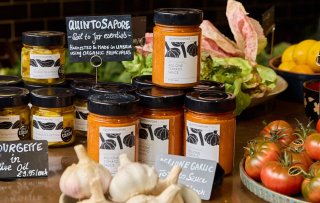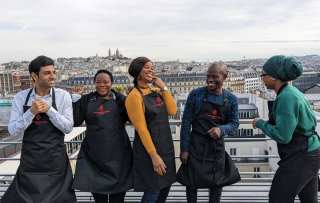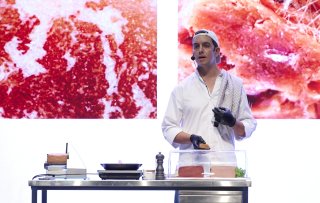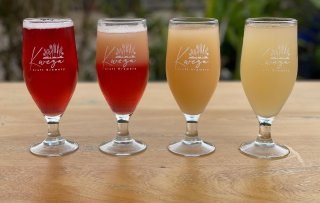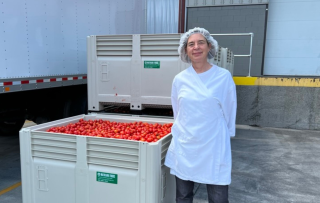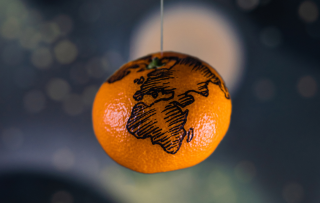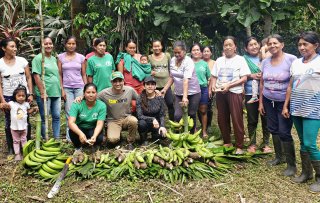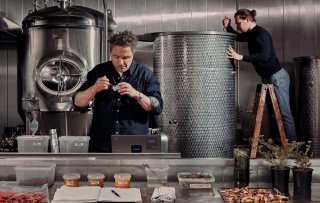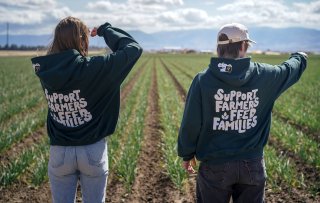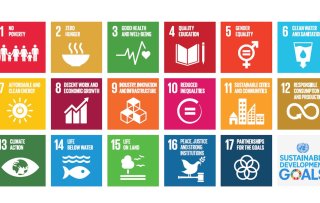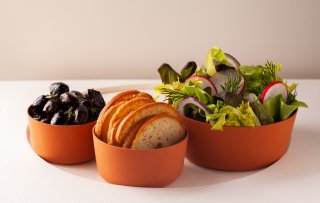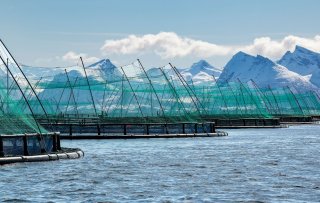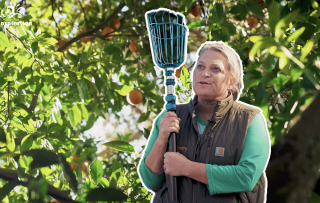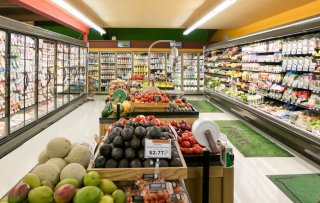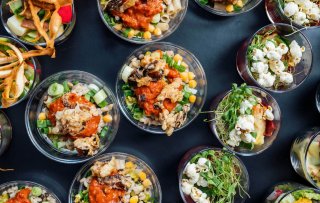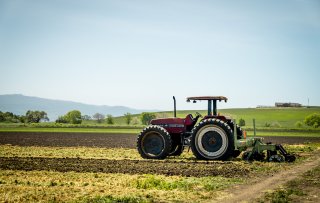Adam Litle, the Chief Executive Officer of Sound Agriculture, is at the forefront of leveraging the natural abilities of plants to help agriculture adapt faster to changing conditions and become more resilient. Sound has formed partnerships with over a dozen companies to enhance flavor, reduce spoilage, and boost crop yields. Litle explains how Sound’s groundbreaking technology enables rapid innovation in crops and how farmers, consumers and society can benefit.
A better food system starts with a vision. In his podcast series Food Lab Talk, Google's Vice President of Workplace Strategy, Innovation and Sustainability, Michiel Bakker, interviews inspiring change makers working at the forefront of the most pressing food system challenges. Each month, Food Inspiration highlights one of these visionaries. The first season of Food Lab Talk focuses on reducing loss and waste in the food system and features Adam Litle from Sound Agriculture.
Speeding up nature
“At Sound we are building a new type of agricultural company that focuses on nature-based solutions to grow food as opposed to using bulk fertilizers, chemicals and GMOs,” Litle explains. “Sound runs
two major business lines. One is in the business of how we farm and the other one is in what we grow. Our flagship product is called SOURCE. It is a biochemistry product that mimics the chemical signals that naturally occur in plants and communicates with the soil microbiome. A plant interacts with billions of microbes in the soil at the root zone, signaling to those microbes that it wants certain nutrients – in particular nitrogen and phosphorus – in exchange for sugars from the plant. We have found a way to strengthen that signal and further stimulate microbes that fix nitrogen and solubilize phosphorus – kind of like cafeine for microbes. This can increase yield and decrease the need for synthetic fertilizer by up to 30%, which has a massive impact on global greenhouse gas emissions as well as water and food quality.”
"On-demand breeding can help address waste where it begins: the crops themselves"
Another promising focus area of the company is on-demand breeding. “We discovered how we can change the plant's gene expression, specifically at the seed stage when the seed germinates. We're not changing the DNA, rather enhancing or blocking how much of the gene is expressed into proteins that determine characteristics like taste, nutrition, resilience or yield. This process of gene expression happens naturally in plants, and in humans too. It is called epigenetics. The big break-through is that we can now impact specific plant traits in months instead of the typical seven to ten years to breed new crop traits.”
On-demand breeding can help address waste where it begins: the crops themselves. “By tuning gene expression, we can grow produce that’s more robust, increasing durability during transportation and extending shelf life at grocery stores and in homes. Another benefit: the technology in itself is not very costly as it speeds up the product development cycle so drastically. Meaning that as soon as the product-market fit is validated, this technique can scale to mass market rather quickly and become available at a democratic price point.”
Putting a dimmer switch on gene expression
“Recently, the new technology to breed new crop traits is CRISPR gene editing. With this you can basically turn genes on and off, tantamount to turning a light switch on and off in a room. In this new research field of epigenetics, our on-demand technology works more like a dimmer switch. This gives a much more nuanced and natural outcome. Earlier this year we launched a consumer product pilot in grocery stores in the New York area; a new heirloom tomato variety called the Summer Swell Tomato. This tomato has a longer shelf life and as a result longer peak flavor. We tuned down an enzyme that breaks down the plant skin. As a result, the skin and the plant architecture is more robust. Now consumers can have an amazing tasting heirloom tomato, that's just like the one you would get at a farmer's market, but it'll last a week or more on your shelf at home instead of just a few days.”
"We have found a natural way to speed up the process of breeding new crop traits”
Taking consumers along
As with all new breeding techniques, some consumers remain skeptical and question if the solution is truly ‘natural.’ Litle acknowledges the importance of helping people understand what Sound does is actually an accelerated version of natural breeding. “The short explanation we often give is that we don’t do anything that nature can’t do on its own. All plants, animals and humans have epigenetic factors that influence how our genes are expressed. And that leads to variations in natural outcomes. That's part of how breeding has been done for hundreds of years.”
This is different from GMOs. “Most people don't really understand what GMO actually is,” Litle states. “Gene modification is when you're taking genes from different species, a bacteria or an insect for example, and you're splicing it into a crop to alter its traits. That is something that literally nature could not do on its own and therefore by definition is unnatural. What Sound Agriculture is doing, nature can also do - and often does - on its own. We see it happening all the time. The development of sweeter tomatoes, tomatoes with longer shelf life, tomatoes with better skin happens in nature as well. But today this is often the result of random chance and crossbreeding, which takes seven years or more in a lot of cases. At Sound, we have basically found a natural way, through the plants own mechanisms, to speed up that process in a more targeted way.”
A horrible trade off
Litle is convinced his technology could help create a more agile and resilient food system. “Everyone knows that our food system is reaching its limits. There is no silver bullet for tackling the challenges around climate change, food waste or food insecurity. There is no single thing that's going to solve this. Purists might say, you're still using technology in the cell and that is wrong. To them I would say, if you believe that, you probably shouldn’t buy our product. Yet, I feel it is not the way forward to reject all forms of innovation and technology, especially as what we do is on the side of what nature can do itself. It would essentially mean that we would willingly accept the consequences of climate change, biodiversity loss or the global obesity epidemic, without trying to mitigate it in a very elegant, low risk way. In my opinion, that would be a horrible trade off for people and the planet.”
.jpg-28x28.jpg) Written by
Written by 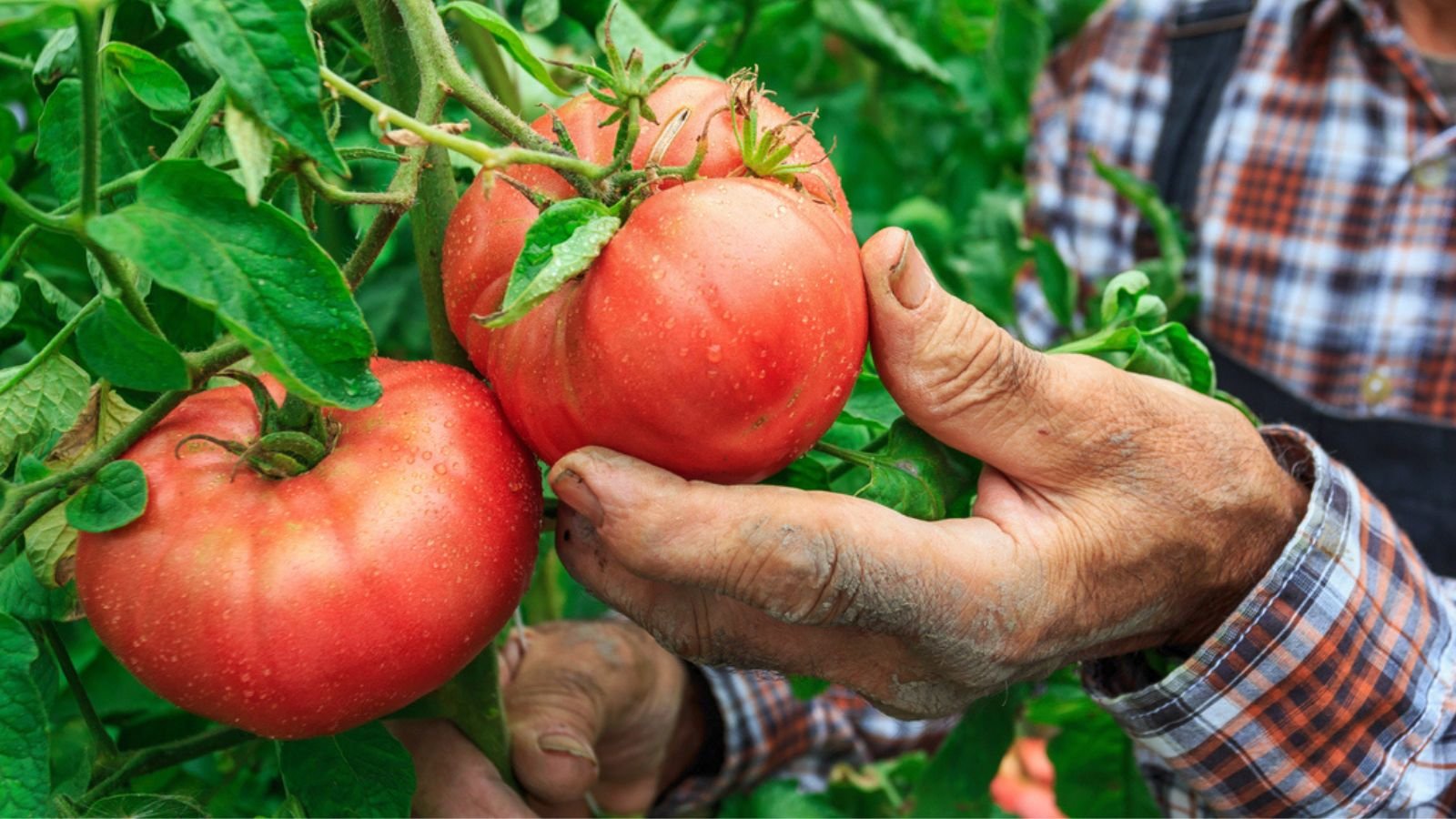
.jpg-300x300.jpg)
.jpg-50x50.jpg)









